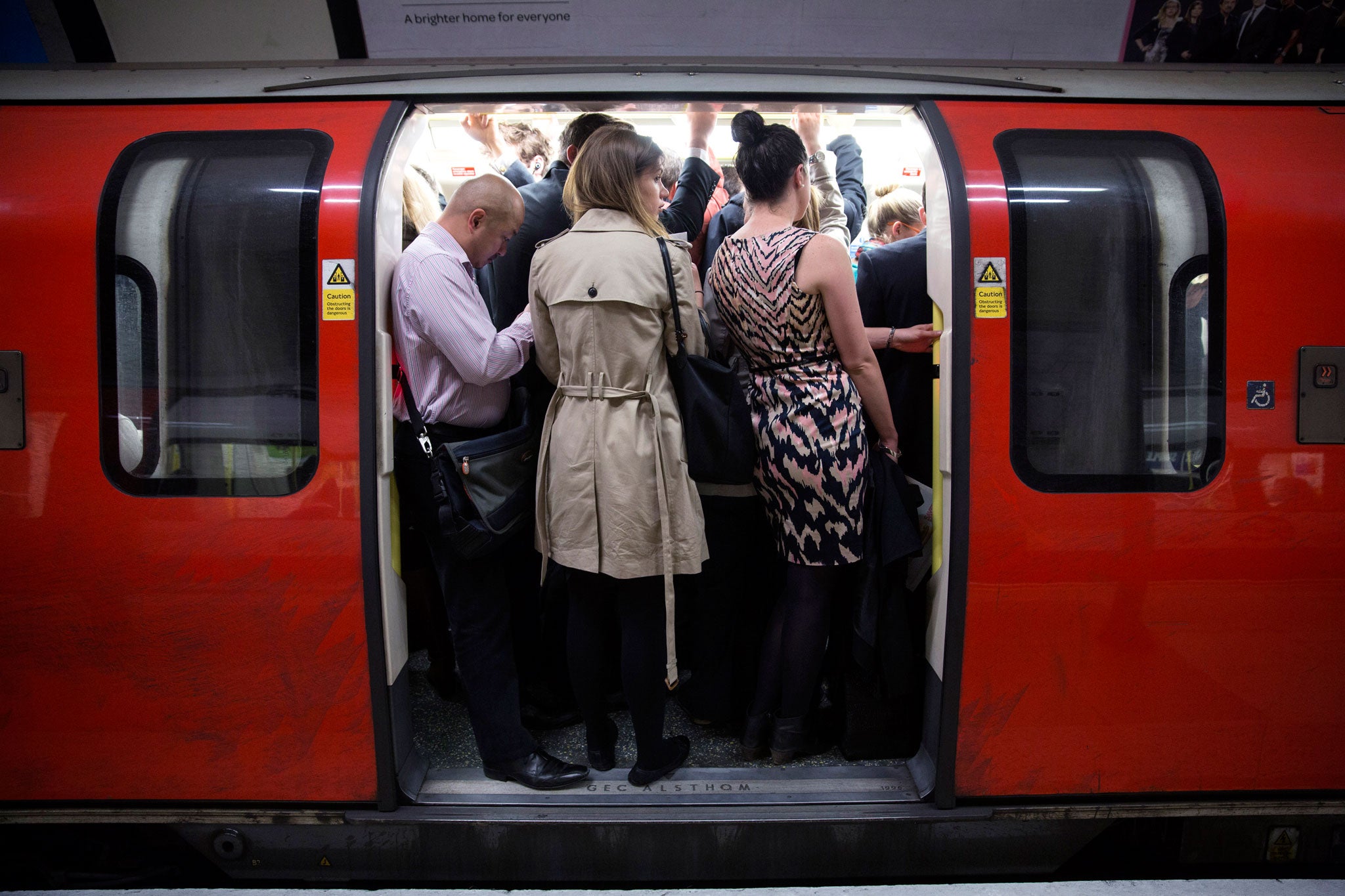Rush Hour by Iain Gately, book review: No wonder commuters go off the rails
Today's travellers are packed in like livestock but Edwardians got breakfast on the Tube

Your support helps us to tell the story
From reproductive rights to climate change to Big Tech, The Independent is on the ground when the story is developing. Whether it's investigating the financials of Elon Musk's pro-Trump PAC or producing our latest documentary, 'The A Word', which shines a light on the American women fighting for reproductive rights, we know how important it is to parse out the facts from the messaging.
At such a critical moment in US history, we need reporters on the ground. Your donation allows us to keep sending journalists to speak to both sides of the story.
The Independent is trusted by Americans across the entire political spectrum. And unlike many other quality news outlets, we choose not to lock Americans out of our reporting and analysis with paywalls. We believe quality journalism should be available to everyone, paid for by those who can afford it.
Your support makes all the difference.Here are some facts you'd probably prefer not to think about as you get out of bed in the morning.
Britain's rail commuters are allocated a theoretical 0.45 metres of space each – which they rarely get in the rush hour, and is less than the law dictates for the humane transport of farm animals. In summer, temperatures on trains and buses routinely exceed the 30C legal limit for livestock. It is a dismal fact of urban life that millions of us every day submit voluntarily to being stuffed into spaces unfit for pigs.
Yet the commuter's tale hasn't always been one of woe, as this entertaining social history of life in the rush hour shows. When commuting began in the first railway boom of the Victorian era, it was a romantic dream of escaping the noise and pollution of the city and bringing up a family amid green spaces, while still able to keep office hours in town.
Speculators clustered around the mushrooming new stations, turning tiny farming hamlets into swathes of "railway suburbs". The ultimate commuter fantasy was "Metroland", a brand created by the Metropolitan Railway to sell the semi-detached lifestyle in Middlesex, Herts and Bucks. For the mock-Tudor pioneers there were comforts aplenty. Hard to believe it now on today's packed Tube, but in Edwardian times you could get silver service breakfast and dinner served in a Pullman car on the train to Baker Street.
Today, commuting is a universal part of the working lives of half a billion people across the planet – and a much grimmer experience. The Tokyo Metro employs oshiyas – staff in paramilitary uniform who shove passengers into the carriages. On the Mumbai Suburban Railway – the world's most overcrowded – an average of seven people die each day. The seats on the Newcastle Metro were found to host 190,500 bacterial cells per square centimetre.
Commuters are changing, too. The stereotype is no longer a bowler-hatted Reggie Perrin on the 8.15 from Surbiton but a motorist in a Ford Focus fuming with road rage on the M25 – "the world's largest car park". (Two-thirds of British commuters go by car.)
And don't bet on the idea that commuting will one day be abandoned as an anachronism that wastes our time and the planet's resources. Thus far, the much vaunted teleworking revolution hasn't happened, and rising urban house prices everywhere are forcing workers farther from their offices.
Whether much joy can be derived from ever-longer and more sardine-like journeys to work seems doubtful, but Iain Gately is resolutely upbeat in his conclusions: "Although commuting is accused of causing a host of problems, both physical and psychological, including stress, obesity, hyperactivity, impotence and heart disease, by many measures commuters are life's winners. Together, they gather most of its gold, live to ripe old ages and set their children to the best of all starts."
Michael Williams' new book, 'The Trains Now Departed', will be published in May 2015
Join our commenting forum
Join thought-provoking conversations, follow other Independent readers and see their replies
Comments